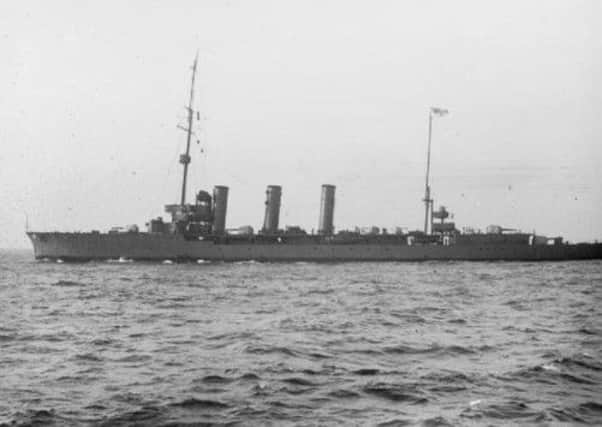Scapa Flow divers search called off


The latest efforts to trace the men who went missing last week involved the Police Scotland Dive and Marine Unit from Aberdeen, along with a remotely operated vehicle.
A Police Scotland spokesman said: “We can confirm that there is no sign of the two missing divers following the conclusion of extensive searches in the Scapa Flow area of Orkney.
“There are no further searches planned.”
Advertisement
Hide AdAdvertisement
Hide AdThe missing unnamed men, aged 62 and 58, from Holland, had failed to surface during a dive last week from the wreck of the German battleship, SMS Brummer - one of 52 which famously scuttled seven months after the end of the First World War.
Scapa Flow is a popular attraction for divers around the globe – with around 4,000 travelling to the islands and boosting the economy by an estimated £3.5million a year – with seven of the German wrecks still on the seabed.
The British battleships Royal Oak and Vanguard are also war graves in the same stretch of water.
The Stromness lifeboat was launched to take part in an initial search, about one and half miles North of Cava.
The Shetland-based Coastguard search and rescue helicopter was also involved.
There is an average of between one to two diver deaths a year at Scapa Flow, although there were four in 2004.
The latest before this week was a 66-year-old man from Holland who died last September while diving at the wreck of the SMS Dresden. He was not named.
The Brummer is not considered to be one of the more technically difficult dives in the area, but the deteriorating condition of all of the wrecks can make them dangerous.
Advertisement
Hide AdAdvertisement
Hide AdSMS Brummer is one of seven German WWI ships still left in Scapa Flow after the fleet scuttled in 1919.
The minelaying light cruiser was the lead ship of her class.
She and her sister were used by the German Navy to raid a British convoy to Norway in October 1917. The two ships sank two escorting destroyers and nine of the 12 merchant ships of the convoy.
The Brummer was one of a 74-strong fleet of ships of the German High Seas Command which had to surrender for internment at Scapa Flow as part of the Armistice agreement in 1918.
On 21 June, 1919, under the mistaken belief that peace talks had failed, the fleet commander, Rear Admiral Ludwig von Reuter, gave the order to scuttle the entire fleet.
A total of 52 ships were sunk to the seabed, and the event remains the greatest loss of shipping ever recorded in a single day.
The majority of the German ships were raised in one of the largest ever salvage operations in history and only seven of them remain, although evidence of the others can still be found by divers.
The seven German wrecks that remain are scheduled under the Ancient Monuments and Archaeological Areas Act 1979.
Advertisement
Hide AdAdvertisement
Hide AdMeanwhile, the British battleship Vanguard was sunk in an accidental explosion in 1917, killing all but two of the 845 men on board.
In 1939 HMS Royal Oak was torpedoed and turned turtle within five minutes, drowning 833. Both are now war graves that may not be dived.